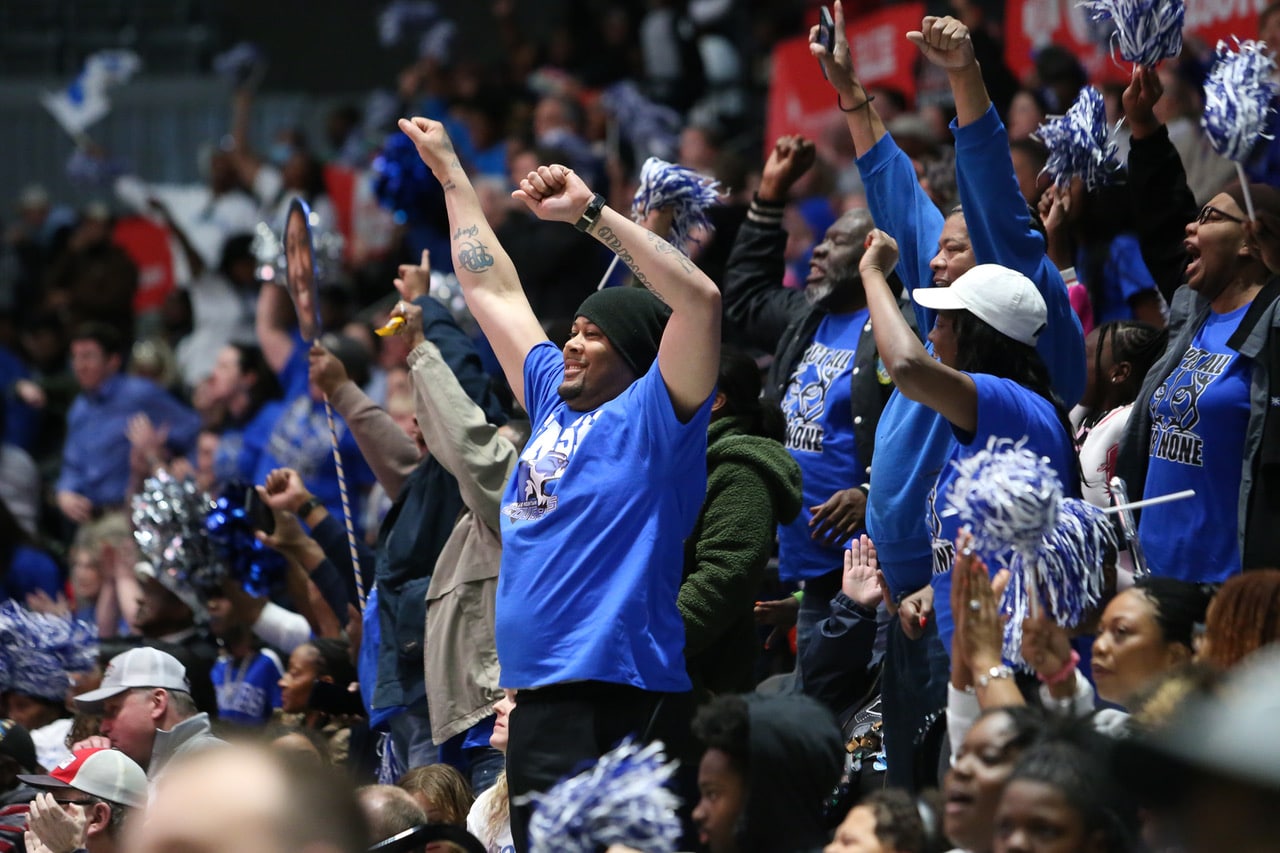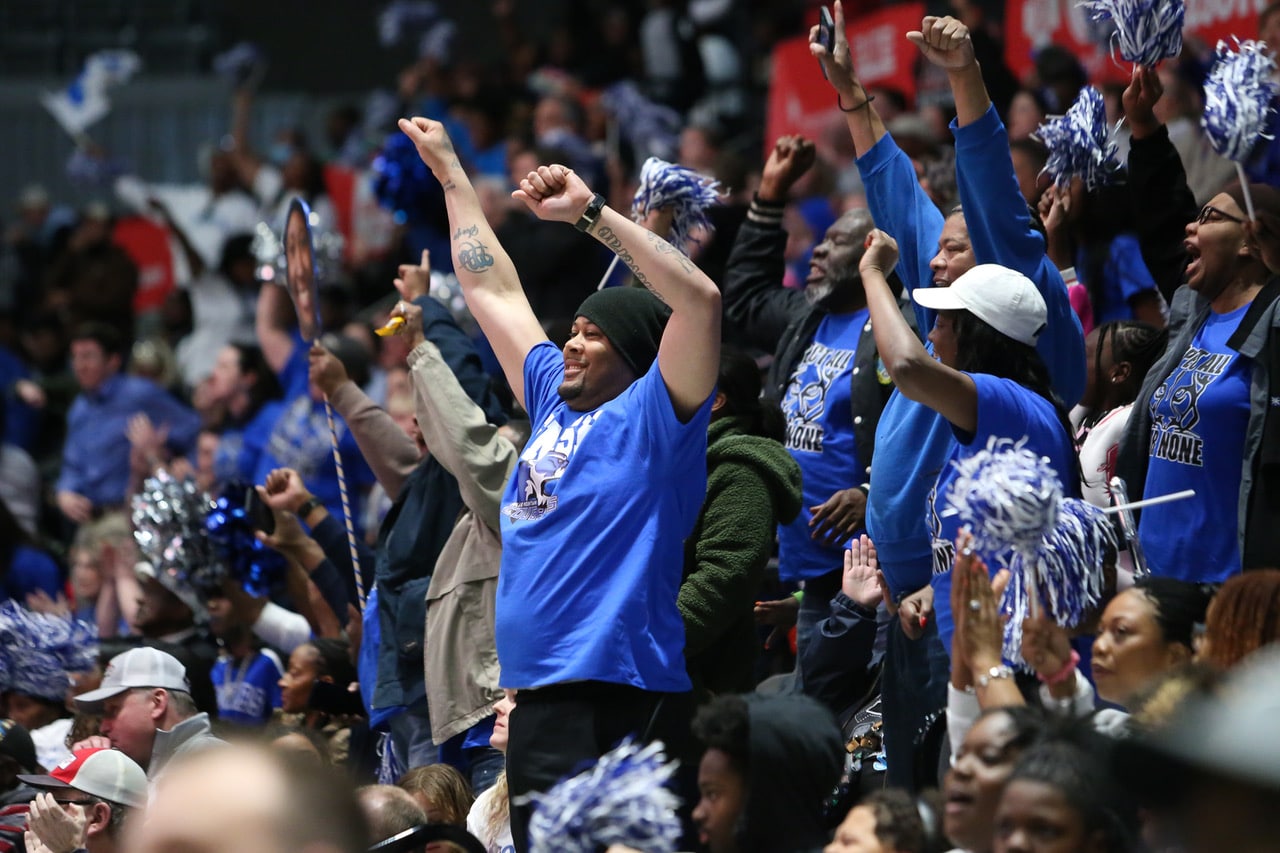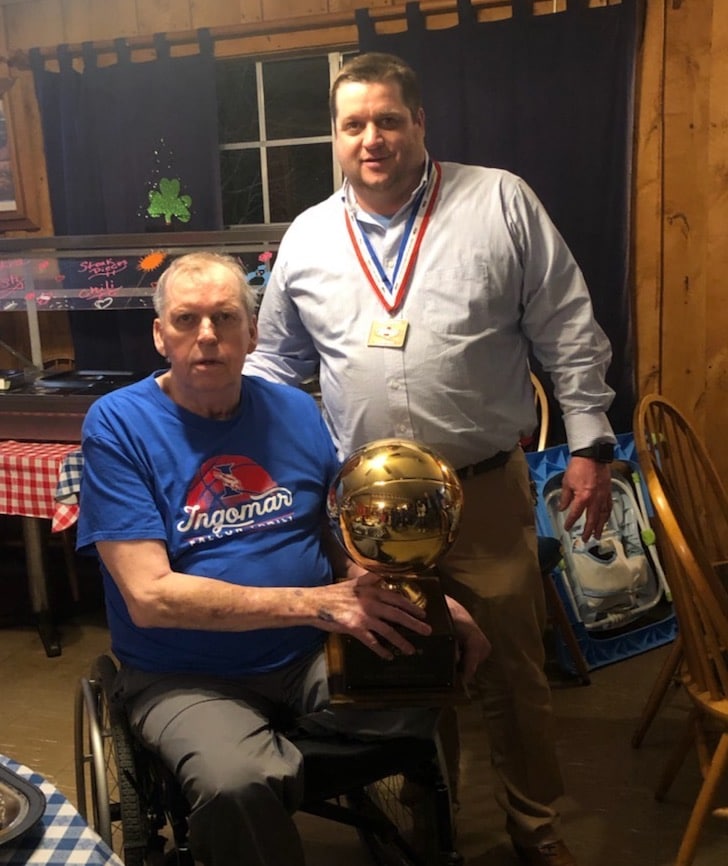Mississippi Today
Hill Country basketball: It’s like a religion, and everyone believes


We can argue from now to next year about whether Mississippi is a football state, a basketball state, a baseball state — or, for that matter, any kind of sports state at all.
What we cannot argue is this: In northeast Mississippi, most often referred to as Hill Country, basketball is king.
Always has been. And, I would wager, always will be.

Let's take, for example, the recent Mississippi public schools state tournament that concluded over the weekend at the Mississippi Coliseum. Fourteen state champions in seven divisions were crowned. Eight were from up in the state's northeast corner. The only time Hill Country teams lost was when they played each other.
A quick recounting: In Class 1A, the Blue Mountain girls and the Biggersville boys were winners. In Class 2A – stop me if you've heard this before – Ingomar swept both the boys and girls titles. In Class 3A, the Belmont girls and Booneville boys are champions, and the Booneville girls lost by one point to Belmont. In Class 4A, Tishomingo County's girls easily won the crown, and in Class 7A, Tupelo's girls won it all.
You will note that nearly all the Hill Country champions are from the MHSAA's smaller divisions, and there's a reason. For the most part, northeast Mississippi schools have just said “no” to consolidation. And that has a lot to do with basketball, or more specifically, with the pride the small towns and communities have in their basketball teams.
“Basketball is almost like a religion up there,” says MHSAA executive director Rickey Neaves, and he should know. Neaves played at Saltillo and coached, taught and was an administrator at Booneville. “That's the way people are raised. It's in their blood. There are basketball goals in every yard, every park and any place, really, that's level enough to dribble a ball.”
Neaves knows because it is in his blood, too.
These words are written by a guy from Hattiesburg, nearly at the other end of the state. But they are also written by a guy who learned to read by reading the sports sections of daily newspapers, especially the scoreboard pages with all the scores and statistics in small print. And I can remember picking up the Jackson newspapers back in the 1950s when I was learning to read and being flabbergasted to see high school basketball scores in September and October. Schools from exotic-sounding places such as Jumpertown, Hickory Flat, Ingomar, Potts Camp, Wheeler, Baldwyn, Blue Mountain and West Union were already playing basketball. And it seemed as if they played every night. The 1956 Ingomar girls won the state championship and finished with a 54-0 record. Fifty-four and zero!
I remember asking my daddy about it, and his saying, “Those schools don't play football, son. They don't have enough students for a football team. They play basketball year-round.”
He showed me on a state map where those towns were and he told me this, too: “Those teams know how to play.”
For five decades now, I've watched those teams from tiny towns and communities make the three hours-plus drive down to the Big House, and to this day am still amazed at how many folks follow the yellow school buses to support their favorite team. Blue Mountain is a community of about 800, but there appeared at least 2,000 blue-clad fans yelling themselves hoarse at the championship game.
“We get support from all over Tippah County,” Regina Chills, the Blue Mountain coach, said. “There were people from Ripley and Walnut here cheering for us.”
One strongly suspects there were also Blue Mountain ex-patriots who now live in other parts of Mississippi in attendance as well. Basketball pride and tradition runs deep in Hill Country.

Take Ingomar, which won both the 2A titles. That makes 20 state championships total for Ingomar, 13 for the girls and seven for the boys. This one was particularly special in Ingomar, because Jonathan Ashley, son of Ingomar coaching legend Norris Ashley, won his second as a coach, his first in the Big House. Norris Ashley, whose 1978 team famously won the Overall State Championship (back when there was such a thing), representing the smallest classification. It was Hoosiers in Mississippi.
Norris Ashley, who died just over a year ago, won nine state titles and more than 1,700 games. His son learned from one of the best to ever do it by following his daddy's teams to the Big House nearly ever year. Norris Ashley was like Hill Country deity. You think this year's championship wasn't extra special in Ingomar and in the Ashley family?
Excellent coaching has been the staple of Hill Country basketball. Ashley and others such as brothers Milton and Malcolm Kuykendall, Harvey Childers, Jimmy Guy McDonald, Gerald Caveness, Kermit Davis Sr., and, let us not forget, Baldwyn legend Babe McCarthy easily would have won elections for mayor in their towns. But then, why take a demotion?
The next generation of Hill Country coaches — folks such as Jonathan Ashley and Trent Adair at Ingomar, Cliff Little at Biggersville, and Mike Smith at Booneville — carry on the tradition.
As Rickey Neaves put it, “Those coaches, in many cases, are the most respected people in their communities. You rarely see them leave. Why would they? The communities support them so well. The gyms are packed. The kids grow up wanting to play. That's why good coaches gravitate to that area and stay there. Who wouldn't want to coach basketball where basketball is so important?”
Who, indeed?
MHSAA State Championship results
Class 7A: Boys: Meridian 54, Clinton 50; Girls: Tupelo 47, Germantown 38
Class 6A: Boys: Olive Branch 59, Ridgeland 56; Girls; Neshoba Central 53, Terry 39
Class 5A: Boys: Canton 58, Yazoo City 40; Girls: Laurel 40, Canton 32
Class 4A: Boys: Raymond 53, McComb 28; Girls: Tishomingo County 37, Morton 17
Class 3A: Boys: Booneville 46, Coahoma County 43 (OT); Girls: Belmont 40, Booneville 39
Class 2A: Boys: Ingomar 48, Bogue Chitto 46; Ingomar 57, New Site 40
Class 1A: Boys: Biggersville 45, McAdams 41; Girls: Blue Mountain 38, Lumberton 36
This article first appeared on Mississippi Today and is republished here under a Creative Commons license.
Mississippi Today
On this day in 1892
MAY 21, 1892

Crusading journalist Ida B. Wells published a column exposing the lynchings of African-American men and denouncing claims that the lynchings were meant to protect white women.
Her anti-lynching campaign came after a mob killed three of her friends, who had reportedly opened a grocery store that competed with a white-owned store in Memphis.
Upset by Wells' writings, a white mob destroyed her presses and threatened to kill her if she ever published again. She left Memphis for Chicago, but she continued to expose lynchings, calling for national legislation to make lynching a crime.
In 1898, she took her protest to the White House.
“Nowhere in the civilized world save the United States of America do men, possessing all civil and political power, go out in bands of 50 and 5,000 to hunt down, shoot, hang or burn to death a single individual, unarmed and absolutely powerless,” she wrote. “We refuse to believe this country, so powerful to defend its citizens abroad, is unable to protect its citizens at home.”
The National Memorial for Peace and Justice in Montgomery, which opened in 2018, features a reflection space in honor of her.
Congress finally passed an anti-lyncing law in the 2021-22 session. The Emmett Till Antilynching Act defines lynching as a federal hate crime.
This article first appeared on Mississippi Today and is republished here under a Creative Commons license.
Mississippi Today
On this day in 1961
MAY 20, 1961

A white mob of more than 300, including Klansmen, attacked Freedom Riders at the Greyhound Bus Station in Montgomery, Alabama. Future Congressman John Lewis was among them.
“An angry mob came out of nowhere, hundreds of people, with bricks and balls, chains,” Lewis recalled.
After beating on the riders, the mob turned on reporters and then Justice Department official John Seigenthaler, who was beaten unconscious and left in the street after helping two riders.
“Then they turned on my colleagues and started beating us and beat us so severely, we were left bloodied and unconscious in the streets of Montgomery,” Lewis recalled.
As the mob headed his way, Freedom Rider James Zwerg said he asked for God to be with him, and “I felt absolutely surrounded by love. I knew that whether I lived or died, I was going to be OK.”
The mob beat him so badly that his suit was soaked in blood.
“There was nothing particularly heroic in what I did,” he said. “If you want to talk about heroism, consider the Black man who probably saved my life. This man in coveralls, just off of work, happened to walk by as my beating was going on and said ‘Stop beating that kid. If you want to beat someone, beat me.' And they did. He was still unconscious when I left the hospital.”
To quell the violence, Attorney General Robert Kennedy sent in 450 federal marshals.
This article first appeared on Mississippi Today and is republished here under a Creative Commons license.
Mississippi Today
Podcast: The controversial day that Robert Kennedy came to the University of Mississippi
Retired U.S. Bankruptcy Judge Edward Ellington talks with Mississippi Today's Bobby Harrison and Geoff Pender about former U.S. Attorney General Robert Kennedy's speech at the University of Mississippi less than four years after the riots that occurred after the integration of the school. Ellington, who at the time headed the Ole Miss Speaker's Bureau as a law school student, recalls the controversy leading up to the speech.
This article first appeared on Mississippi Today and is republished here under a Creative Commons license.
-
Our Mississippi Home7 days ago
Beat the Heat with Mississippi’s Best Waterparks
-
SuperTalk FM4 days ago
State auditor cracking down on Mississippians receiving unemployment benefits
-
Mississippi News Video6 days ago
Jackson has a gang problem
-
Local News3 days ago
Family files lawsuit after teen’s suicide in Harrison County Jail
-
Mississippi Today5 days ago
On this day in 1950
-
228Sports6 days ago
George County Pours Runs In 6A South State Title Victory At PRC
-
Local News Video6 days ago
In the Kitchen with J's Restaurant
-
Mississippi Business4 days ago
Connor Industries locating operations in Coahoma County










































